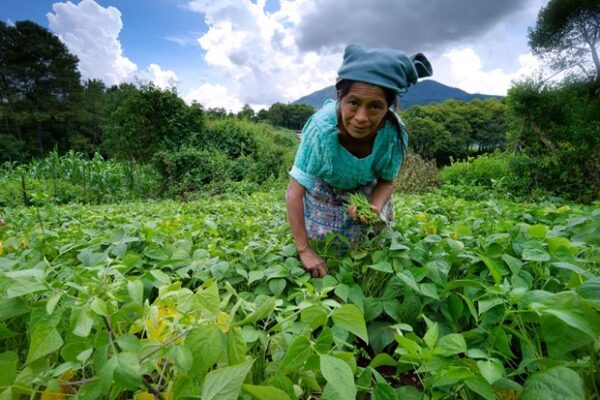To avert future food crises and growing global hunger, Alvaro Lario, the President of the UN’s International Fund for Agricultural Development (IFAD) arrives in Washington this week with an urgent call for increased investment in the small-scale farmers who produce one-third of the world’s food.
“About 3 billion people live in the rural areas of developing countries and rely to a significant extent on small-scale farming for their food and livelihoods,” said Lario. “Rural economies and specifically agriculture have suffered from chronic under-investment in recent decades. Continuing to neglect rural people will increase poverty, hunger, migration, and make conflict and instability more likely. Food and income security are essential for national security.”
IFAD is the UN’s only specialized agency exclusively focused on rural development and boosting rural economies. “The populations we serve, who produce so much of our food, are not looking for hand-outs,” said Lario. “They are seeking to overcome limits such as lack of access to finance, technology and connectivity. They deserve our support.”
Coming from the G7 Agriculture Ministers’ Meeting in Miyazaki, Japan, Lario will make several stops in Washington, D.C. on Capitol Hill to meet with members of Congress and their staff, and then to New York to participate in the Global Citizen NOW event.
Today’s food crisis results from the convergence of multiple crises including climate extremes, conflicts, economic shocks and food supply chain disruptions, many linked to the war in Ukraine and the global pandemic. Food and fuel prices globally were at record high levels by the end of 2022, and though commodity prices have now come down in international markets, food prices have remained high in developing countries which depend greatly on imported food and currency strength against the US dollar.
About 80 per cent of the world’s extremely poor people reside in rural areas. While being essential for global food security, smallholder farmers often live in poverty and hunger, making just six cents for every dollar worth of food they produce.
“We urgently need to increase investment in rural areas of developing countries to safeguard global food security and ultimately, national security,” said Lario.
Investing in rural areas and small-scale farmers can lift millions out of poverty and hunger. Investments in agriculture are effective in reducing both hunger and poverty. GDP generated by agriculture, for example, is 2 to 3 times more effective in reducing poverty than growth in any other sector. Alarming debt levels in low and middle-income countries, global inflation and local currency depreciation make it extremely challenging for developing countries to finance longer-term development. IFAD is calling on its Member States to step up their pledges and invest in a resilient future for all.








